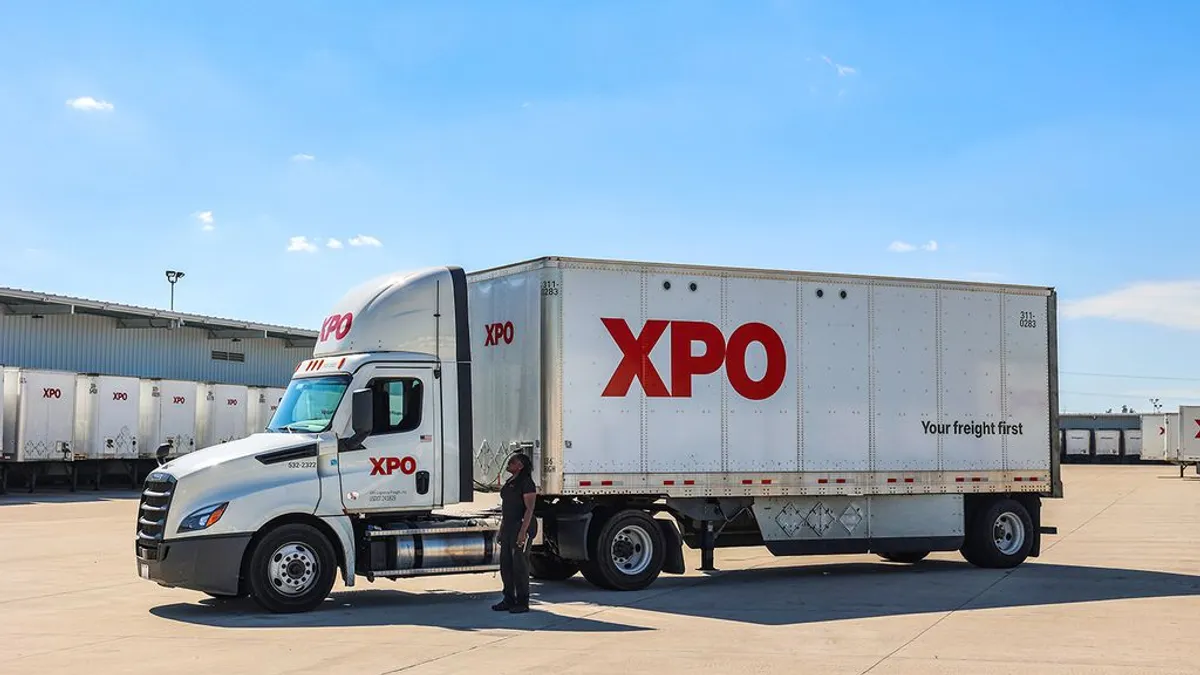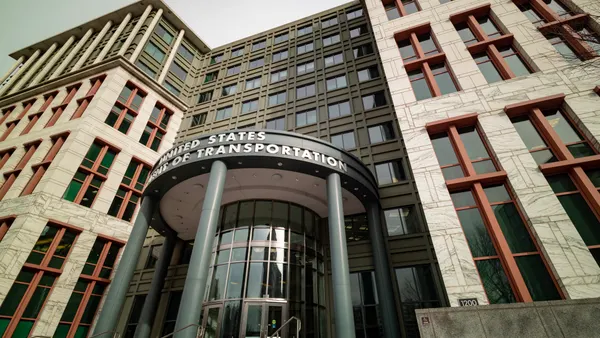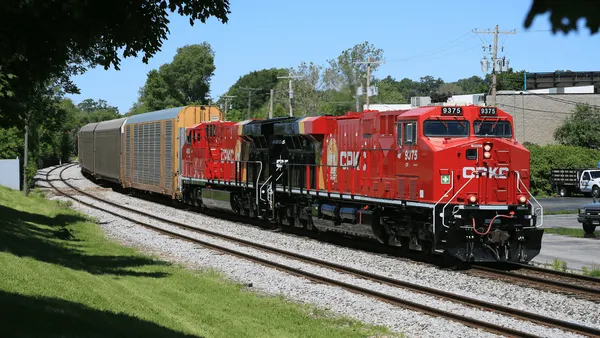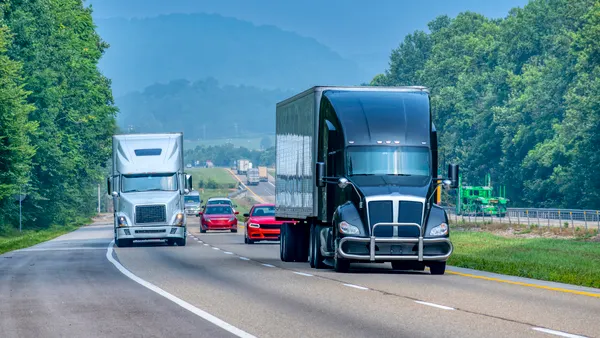Dive Brief:
- In the Federal Highway Administration's 2019 Jason's Law truck parking survey, 79% of 524 truck stop owners and operators indicated they do not plan to add more truck parking, according to slides shown during a National Truck Parking Coalition meeting Tuesday as the FHWA gave a preliminary overview of the results.
- Of 11,696 drivers that participated in the survey, 98% reported difficulties finding safe parking, and 75% said the problem occurred at least weekly. Drivers reported that parking was most difficult from 4 p.m.-5 a.m., Monday-Thursday and October-February. Drivers most frequently cited Georgia, Illinois, New Jersey, New York and Pennsylvania as having shortages.
- The survey also showed that, between 2014, the last time data for a Jason's Law report was collected, and 2019, new parking-space shortages emerged throughout the entire I-95 corridor, in the Pacific corridors, in states surrounding the Chicago region and in other major freight corridors. And some areas that were found to have shortages in 2014 have not improved, including the I-95 Mid-Atlantic and north regions, the Chicago area, and in California.
Dive Insight:
Parking consistently ranks among the industry's top concerns. The challenge is elevating the issue to the upper levels of government and figuring out how to involve the private sector in easing the shortage.
The American Trucking Associations is pleased with the attention the federal government has given to truck parking during the past couple years, Vice President of Highway Policy Darrin Roth said during the meeting. This year, members of the House introduced a bipartisan $755 million Truck Parking Safety Improvement Act. And House Democrats called for more parking spaces in their infrastructure bill in June.
"I really hope the next administration will continue to treat the issue with the seriousness that it deserves," Roth said.
The Jason's Law report is an important lobbying tool, Bryce Mongeon, director of legislative affairs for the Owner-Operator Independent Drivers Association, said during the meeting. "Not many people we've talked to are familiar with the shortage or have thought much about truck parking," he said, and the report educates Congress and their staffers. The full 2019 report will be released at a later date not yet disclosed.
The shortage likely can't be solved without government funds or project management. Observations from 50 state transportation departments collected in the survey showed four key contributors to the parking-space shortage, according the FWHA's slides:
- Not many new public facilities or spaces are being developed.
- Planning, funding and the accommodations of truck parking face challenges.
- Research and discussion is needed around parking business models (pubic-private partnerships) and impacts.
- There is a lack of local government involvement and education.
Addressing these areas would also help to incentivize private entities to create more parking. Lisa Mullings, president and CEO of the National Association of Truck Stop Operators, said in a 2019 statement that lowering costs is crucial. Tax incentives or land acquisition and maintenance assistance could lower costs, as could removing local zoning ordinances that preclude parking construction or helping to pay the cost of necessary permitting, Mullings said.
There was a 6% increase in public parking spaces, and an 11% increase in private parking spaces, from 2014-2019, the report found. But the growth is not enough to keep pace with the increase in vehicle miles traveled, Jeff Purdy of the Federal Highway Administration's Office of Freight Management and Operations, said during the presentation.
But driver feedback showed solving parking-related problems requires a more strategic approach than creating spaces in any given area. Some drivers reported having to park in rural areas and wake up early to drive into the city to make deliveries, Purdy said.
Drivers also reported a desire for a variety of parking types, particularly to accommodate oversized loads. And many said they'd like to see more shippers and receivers offer parking outside for staging, or to allow the driver to arrive the night before and take their break on location.
Feedback from port authorities were a new addition to the 2019 survey, with 18 participating.
"We've still got some challenges to overcome, particularly community concerns," said Maritime Administration Administrator Mark H. Buzby during the meeting. The lack of parking when trucks are waiting to pick up or drop off a box has led drivers to park in residential neighborhoods.
Port congestion, a long-standing issue, has been exacerbated by the coronavirus.The Port of Los Angeles reported in November that a surge in imports caused terminal dwell times to double to five days, street dwell times waiting for warehouse space to double to about seven days, and truck turn times to rise. At that time, the port was planning to propose a monetary incentive for dual transactions.










